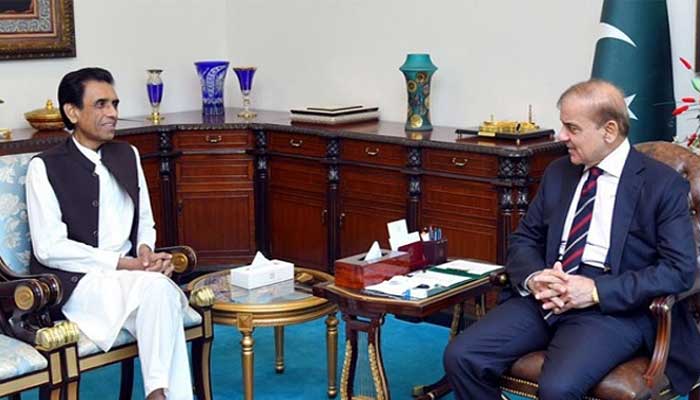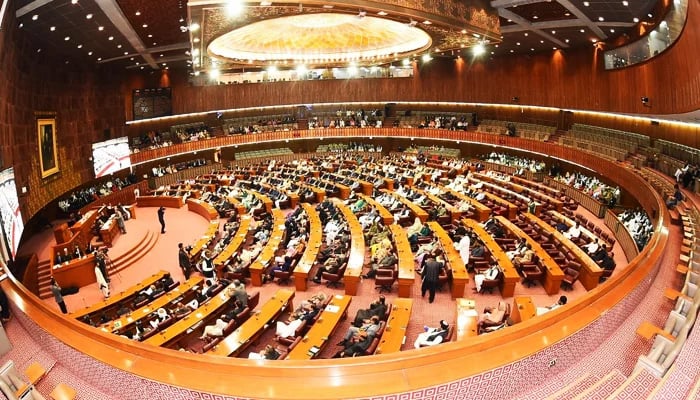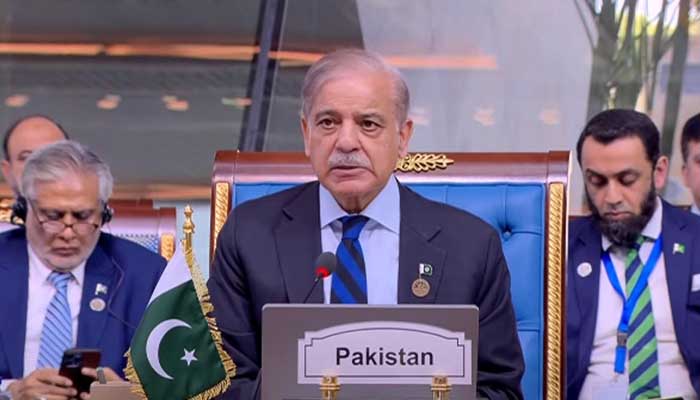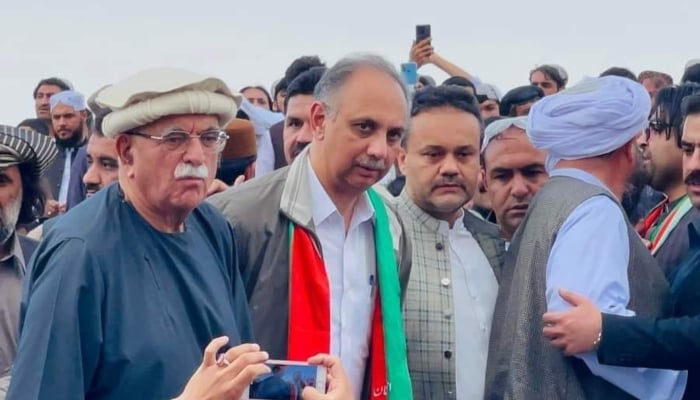‘Don’t know when we’ll quit’: MQM-P’s Khalid Maqbool hints at fallout with govt
“We don’t have pleasant experience of remaining in governments and leaving them,” says MQM-P chief

- It saddens us to see struggles of Karachi: Khalid Maqbool Siddiqui.
- MQM-P chief wants port city to progress similar to Islamabad.
- Education minister laments past experiences with coalition govts.
KARACHI: The Muttahida Qaumi Movement-Pakistan (MQM-P), a key ally of the Pakistan Muslim League-Nawaz-led (PML-N) coalition government, has hinted at leaving the treasury benches due to “growing dissatisfaction” with the Centre, The News reported on Sunday.
“Nobody knows when we’ll leave the government after becoming disgruntled,” remarked MQM-P Convener Dr Khalid Maqbool Siddiqui, who also holds the portfolio of Federal Minister for Education and Professional Training in Prime Minister Shehbaz Sharif’s cabinet.
Siddiqui’s comments, if acted upon, could pose serious challenges for the incumbent government in Islamabad. The coalition was formed with the backing of MQM-P and several other parties after no single side secured a simple majority in the 8 February elections.
The ruling coalition relies on support from the Pakistan Peoples Party (PPP), MQM-P, Pakistan Muslim League-Quaid (PML-Q), Balochistan Awami Party (BAP), Pakistan Muslim League-Zia (PML-Z), Istehkam-e-Pakistan Party (IPP), and National Party (NP).
Speaking at the inauguration of a university in Karachi on Saturday, Siddiqui reflected on MQM-P’s history with coalition governments. “We don’t have a pleasant history of staying in governments or leaving them,” he said.
“We take pride in contributing to national progress, but it pains us to see Karachi struggling. This city’s taxes sustain the entire nation. We hope Karachi, like the rest of the country, can witness development similar to that of Islamabad,” he added.
Later, while addressing the media, Siddiqui criticised the existing local government law in Sindh, describing it as “rotten and incapacitated,” and argued that Karachi’s local government representatives are unable to deliver under such conditions.
He further accused the Sindh government of orchestrating a conspiracy during the last local government elections, which he claimed were far from fair. Though he refrained from naming anyone directly, his remarks were clearly aimed at the PPP-led Sindh government, which is also a key ally of the PML-N in the Centre.
Siddiqui’s statements come amidst ongoing tensions within the ruling coalition. The federal government is already embroiled in disputes with Jamiat Ulema-e-Islam-Fazl (JUI-F) over the madrassa registration bill, while issues such as the management of River Indus canals and Punjab’s administrative affairs have strained relations between the PML-N and PPP.
The PPP has repeatedly voiced dissatisfaction with the PML-N’s handling of their coalition agreement, accusing the latter of failing to honour commitments made at the time of government formation.
Last month, PPP Chairman Bilawal Bhutto-Zardari openly criticised the federal government’s policies, lamenting the lack of respect for his party and the absence of genuine political collaboration at the federal level.
If MQM-P decides to part ways with the coalition, it could exacerbate the challenges already faced by the Centre, which is under political pressure from the Pakistan Tehreek-e-Insaf (PTI), led by Imran Khan.






